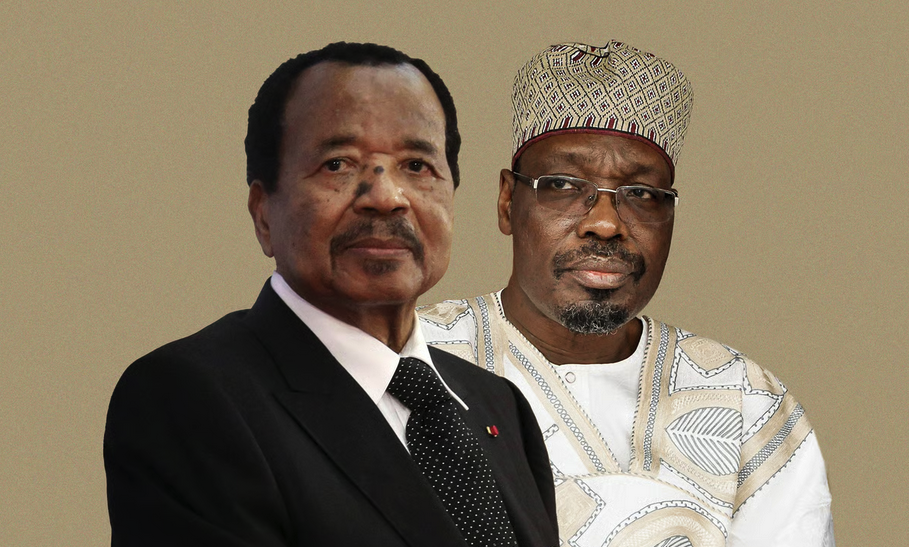Gambiaj.com – (YAOUNDE, Cameroon) – A dramatic twist has emerged in Cameroon’s post-election tensions after revelations that President Paul Biya secretly offered his main challenger, Issa Tchiroma Bakary, the position of Prime Minister in a bid to quell growing discontent over the disputed presidential results.
According to an exclusive report by Jeune Afrique on Tuesday, October 21, the proposal was delivered during a confidential meeting in Garoua last week, led by the Governor of the Northern Region, Jean Abaté Edi’i, and a delegation of presidential emissaries.
Biya, officially credited with 53.66% of the vote by the National Vote Counting Commission, allegedly extended the offer to Tchiroma Bakary, who garnered 35.19% according to official tallies.
The terms of the proposal were clear: in exchange for accepting the premiership and facilitating the appointment of several of his allies to key government positions, Tchiroma Bakary was expected to temper his contestation of the election results.
But the deal went further. According to Jeune Afrique, Biya’s representatives also promised an urgent reform of Cameroon’s electoral code—a longstanding demand of the opposition and civil society—before the next legislative elections scheduled for 2026.
The overture, the magazine reported, had the backing of several foreign diplomats who viewed it as an opportunity to prevent a descent into political unrest.
However, Tchiroma Bakary flatly refused the offer. “All Issa Tchiroma Bakary demands is recognition of the truth of the ballot box,” one of his close associates told Jeune Afrique. The former Minister of Communications, convinced he won the election with 62% of the vote, reportedly viewed the proposal as an attempt at “political neutralization.”
In response, the opposition camp has launched its own verification process, preparing to publish results and polling station records that it says prove Tchiroma’s victory.
This approach echoes past electoral disputes in Cameroon, including those led by John Fru Ndi and Maurice Kamto, both of whom also claimed victory over Biya in earlier contests.
As tensions mount, the Tchiroma Bakary camp is reportedly developing an “action plan to defend the popular victory” once the Constitutional Council releases its final verdict, expected by October 26.
Potential measures include mass demonstrations—despite local bans on public gatherings—and legal challenges supported by a team of domestic and international lawyers.
Analysts say Biya’s outreach to his opponent—uncharacteristic of the 92-year-old leader who has ruled for more than four decades—reflects a rare awareness of the growing risk of instability. The Northern Region, Tchiroma Bakary’s home base, has long felt politically sidelined, and his candidacy drew strong support there, posing a unique threat to Biya’s traditional stronghold.
Observers remain divided on the meaning of Biya’s overture: was it a genuine effort at political inclusion or a strategic move to co-opt and neutralize his rival? Tchiroma’s rejection suggests he believes it to be the latter.
As the October 26 deadline approaches, Cameroon braces for the Constitutional Council’s ruling and its aftermath. Whether Tchiroma Bakary’s defiance will lead to sustained popular mobilization or to another cycle of repression remains uncertain—but the latest revelations mark the most serious challenge yet to Paul Biya’s hold on power.










